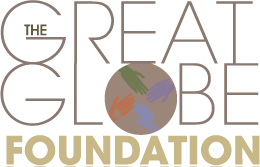24 Feb The Somali Bantu Boy
The Somali Bantus are considered the lower class of the Somalis, the “slaves” of their society. We’ve spoken to Somali Bantu youth here and they have expressed how they are marginalized and discriminated against in their communities. Actually, I have been learning more and more of the difficulties that different nationalities face amongst each other. Racism often leads to violence and in some cases riots. We went to the Transit Center where they keep minorities that are under protection within the camp. These people are truly idle and marginalized, we wanted to read out to them and try to include them in our final group. We will go back tomorrow to watch them sing and dance and hopefully invite one to participate.
Yesterday a young Somali Bantu boy walked in to audition. He is 19 years old and brought his brothers and sisters to sing while he played the drums. He was timid and shy in his introduction, we could scarcely hear him speak. He started to drum on a plastic chair, within moments he began to wake up, to come alive and this young boy turned into a man, a warrior in front of our eyes. The rowdy crowd that was watching through the metal fence of the room was silent. When he was through, it was us who felt the need to bow to him.
We asked him questions about his schooling. It is so important to us that we do not take people out of school, education is essential for progression in any context but in the refugee camp, it might literally be the only way out. This Bantu boy could hardly speak English and his younger brother was the one translating for him. We found out that he is in a class level far younger than him, probably going to school with children aged 11 or 12. But it struck me that when he was drumming, I could see his skill and his own brilliance and I realized that we had someone very special in our midst. I realize that not everyone learns the same and maybe for this young man, an academic setting proves impossible for learning. Or what if he was fleeing his country during those formative years and only now is he able to learn what he missed. Watching him I felt like I could really help him, that we could, that our program could. If he was to work with us, he would miss several hours of morning school. But something inside of me believes very strongly that he would gain so much more from working with us than he is gaining in school. We would give him something that maybe he’s never gotten before: attention, acknowledgment, a chance.
For this boy to wake up so brilliantly while he was drumming on the chair, to see his strength and his power through this moment of expression, I knew that we could mentor and foster his skill level in a way that has never happened before. His English speaking would improve, interpersonal skills, listening, musicality, writing, planning and leading. Plus he’d be given the opportunity to perform for the community in June, exchange with students from the US, Kenyan youth and perform in Nairobi as a representative of the Dadaab Refugee Camp. We want our participants to be leaders in the community.
So, we found out where he goes to primary school and who his teacher is, and today we went to his school. As we rolled into to the school yard in our big truck, raising up a cloud of dust, the students all rose out of their chairs to watch, wave, smile and hide. We sought out the leaders of the school and spoke with the assistant principle on his behalf. We said we want to work with him. We want to give him an educational and artistic opportunity, something unique and certainly rare. The assistant principle said, “We understand what you are requesting and cannot refuse you. But we also cannot say yes. We need to speak with this boy’s teacher, the principle and with him. We will find out what he needs to achieve and if we believe that you can offer this to him through your program, then we will consent.”
Michael and I will go back to the school tomorrow.
As we left the school yard, I rolled down my window to smile and touch the little hands of children too curious to stand back. I started clapping out a rhythm I heard in the distance and within moments hundreds of children from the different class rooms and tents of the school were clapping in unison.
Can you imagine, the underdog of this society, a shy boy who no one ever looked at or gave a chance to before: We say you are special. We believe in you. We want you. Maybe this could change his life. It certainly has changed mine.


